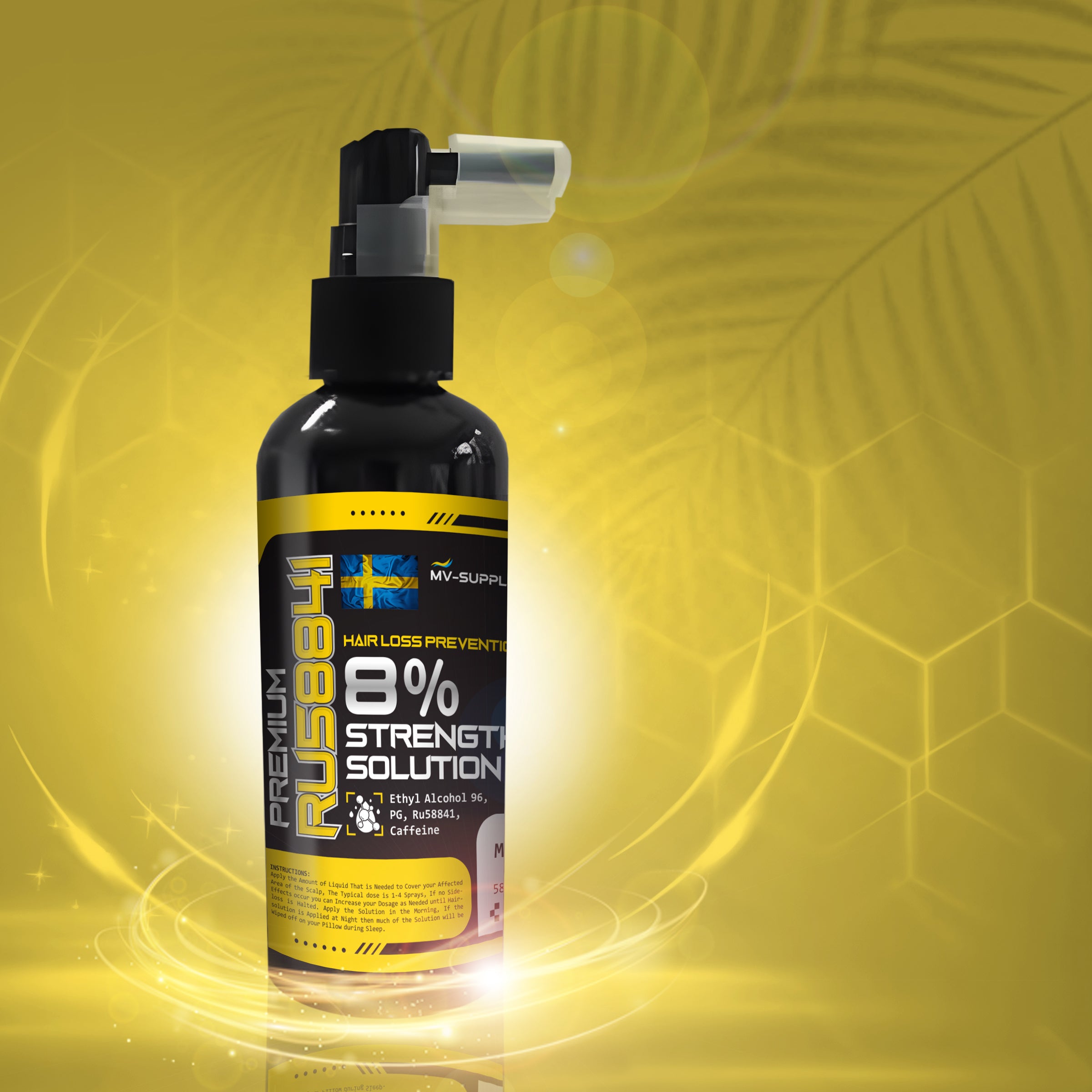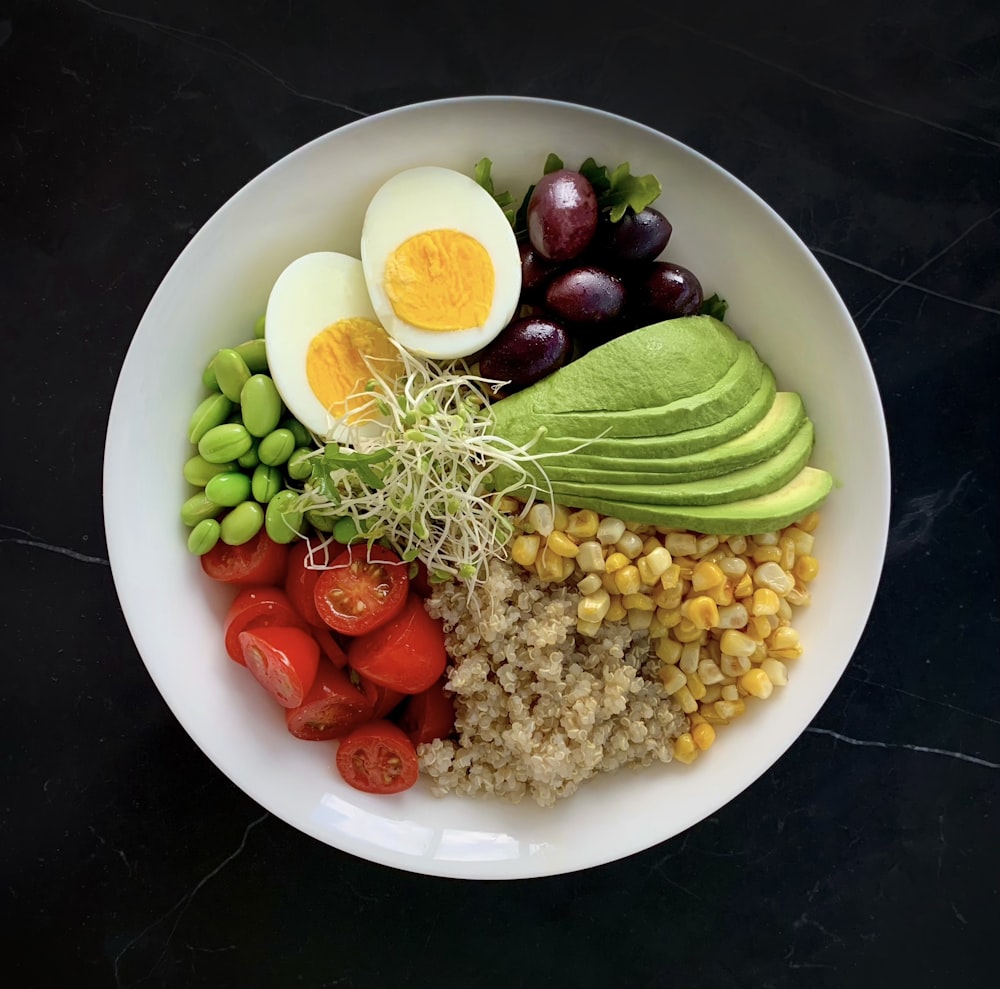Healthy hair is something we all desire – a symbol of well-being and confidence. However, many of us face the common issue of hair loss, and it can be a concern for people of all ages. It can happen due to various factors, including genetic predisposition, vitamin and mineral deficiencies, skin problems, disorders affecting hair growth, poor diet, hormonal imbalances, certain internal diseases, drug use, stress and depression, cosmetic factors, childbirth, and the chemotherapy process.
Nowadays, hair care has seen new developments, and it's important to keep up with the latest tips to address these concerns effectively. So today, our aim is to provide simple and practical advice on caring for your hair in 2024. Stay updated with the latest tips, so that your hair remains strong and vibrant.

The Causes of Hair Loss
Hair loss can be attributed to various factors.
- Genetic Predisposition:
- Family history often plays a significant role in hair loss. If your parents or close relatives experienced it, you may be genetically predisposed to hair thinning.
- Vitamin and Mineral Deficiencies:
- Lack of essential nutrients, such as vitamins (like B vitamins) and minerals (like iron and zinc), can contribute to hair loss. A balanced diet is essential for maintaining healthy hair.
- Skin Problems and Disorders Affecting Hair Growth:
- Conditions like psoriasis and dermatitis can impact the scalp and cause hair loss. Understanding and addressing these skin issues is very important for maintaining a healthy scalp.
- Poor Diet:
- A diet lacking in essential nutrients can weaken hair strands. Incorporating a variety of nutrient-rich foods can support overall hair health.
- Hormonal Imbalances:
- Fluctuations in hormones, particularly during puberty, pregnancy, and menopause, can influence hair growth patterns. Balancing hormones is key to managing these changes.
- Certain Internal Diseases:
- Conditions like diabetes and lupus can affect hair health. Managing underlying health issues is essential for preventing associated hair loss.
- Drug Use:
- Some medications, including certain drugs used for cancer, arthritis, depression, and heart problems, may cause hair loss. Consult with your healthcare provider about potential side effects.
- Stress and Depression:
- Emotional stress and depression can contribute to hair loss. Prioritizing mental well-being is essential for maintaining a healthy head of hair.
- Cosmetic Factors:
- Excessive use of hairstyling tools, tight hairstyles, and chemical treatments can damage hair. Adopting gentle styling practices helps in preventing unnecessary strain.
- Childbirth:
- Hormonal changes during pregnancy and postpartum can lead to temporary hair loss. Understanding this natural process can alleviate concerns.
- Chemotherapy Process:
- Cancer treatments, particularly chemotherapy, can cause hair loss.
Nutritional Tips for Healthy Hair
The nutrients you consume can influence hair loss. If your diet lacks specific essential elements, it may reflect in the condition of your hair.
Fatty acids, particularly omega-3s, are vital for the well-being of your skin, hair, and nails. Including foods rich in omega-3 in your daily diet is important for optimal health.
Key Nutrients for Hair Growth
Vitamins:
- Vitamin A: Supports sebum production, keeping the scalp moisturized.
- B Vitamins (Biotin, B6, B12): Contribute to overall hair health and prevent hair loss.
- Vitamin C: Aids in collagen production, essential for hair structure.
- Vitamin D: Contributes to the health of hair follicles.
- Vitamin E: Acts as an antioxidant, protecting hair from damage.
Minerals:
- Iron: Facilitates oxygen transport to hair follicles.
- Zinc: Supports hair growth and repair.
- Selenium: Helps prevent damage to hair cells.
Proteins:
- Keratin, a vital protein, serves as a fundamental building block for hair structure.
Foods Rich in Nutrients
To ensure an adequate intake of these essential nutrients, consider eating the following foods:
Protein Sources:
- Lean meats (chicken, turkey, fish)
- Eggs
- Legumes (beans, lentils)
- Nuts and seeds
Vitamin-Rich Foods:
- Carrots, sweet potatoes (Vitamin A)
- Whole grains, leafy greens (B Vitamins)
- Citrus fruits, strawberries (Vitamin C)
- Fatty fish, fortified foods (Vitamin D)
- Nuts, seeds, spinach (Vitamin E)
Mineral-Rich Foods:
- Red meat, poultry, fish (Iron)
- Nuts, seeds, dairy products (Zinc)
- Brazil nuts, sunflower seeds (Selenium)
While certain factors like age and genetics are beyond one's control, diet is a factor that can be managed. The vitamins and minerals obtained from food play a very important role in the hair follicle growth cycle and cellular turnover.
Elaborate Discussion for Each Component
Eggs
Eggs are packed with protein and biotin, essential for hair growth. Protein is essential for hair follicles, and a lack of it in the diet has been linked to hair loss. Biotin is vital for the production of keratin, a key hair protein. Additionally, eggs provide zinc, selenium, and other nutrients crucial for optimal hair health.
Fatty Fish
Fatty fish such as salmon, herring, and mackerel provide omega-3 fatty acids linked to improved hair growth and density. Omega-3s, along with protein, selenium, vitamin D3, and B vitamins in fatty fish, contribute to strong and healthy hair. Vitamin D3 deficiency has been associated with hair loss, making fatty fish a valuable addition to the diet.
Sweet Peppers
Sweet peppers are rich in vitamin C, providing up to 456% of daily needs for women and 380% for men. Vitamin C supports hair growth by promoting collagen production and acting as a powerful antioxidant, protecting hair strands from oxidative stress. Additionally, sweet peppers are a good source of vitamin A, important for hair growth and sebum production.
Berries
Berries are rich in antioxidants and vitamins, particularly vitamin C, which protects hair follicles from damage caused by free radicals. Vitamin C also aids collagen production, strengthening hair and preventing brittleness. Berries, like strawberries, are high in vitamin C and can support hair growth.
Spinach
Spinach is a nutrient powerhouse, containing folate, iron, and vitamins A and C, all vital for hair growth. Vitamin A is essential, but excessive supplementation can lead to hair loss. Spinach is also an excellent plant-based source of iron, crucial for red blood cells' oxygen transport, metabolism, and growth and repair.
Sweet Potatoes
Sweet potatoes are rich in beta-carotene, which converts into vitamin A, vital for hair health. However, excessive vitamin A can lead to hair loss. Sweet potatoes offer a balance that provides the necessary vitamin A for hair growth without over supplementing.
Nuts
Nuts, like almonds, offer a mix of nutrients essential for hair growth, including vitamin E, B vitamins, zinc, and fatty acids. These nutrients are associated with reduced inflammation and overall heart health, making nuts a beneficial addition to the diet.
Seeds
Seeds, such as sunflower seeds, provide a nutrient-rich option for hair growth. With vitamin E, B vitamins, and omega-3 fatty acids, seeds contribute to overall hair health. Eating a variety of seeds, like flaxseeds and chia seeds, can offer a broad range of essential nutrients supporting hair growth.
Avocados
Avocados are not only delicious but also a source of healthy fats and vitamin E, supporting hair growth. Vitamin E acts as an antioxidant, preventing oxidative stress and protecting the scalp from damage. Including avocados in the diet can contribute to maintaining healthy hair.
Oysters
Oysters are an excellent source of zinc, with one medium oyster meeting up to 96% of daily zinc needs for women and 75% for men. A deficiency in zinc can lead to telogen effluvium, a reversible form of hair loss, and studies suggest that zinc supplementation can reverse hair loss caused by zinc deficiency. Obtaining zinc from foods like oysters is recommended to avoid potential toxicity.
Beans
Beans, a plant-based protein source, are essential for hair growth. They provide zinc, iron, biotin, and folate, supporting the hair-healthy nutrients. Black beans, for instance, offer 14% of a woman's daily zinc needs and 10% for men in a 3.5-ounce serving. Beans are versatile, inexpensive, and a convenient addition to the diet.
Soybeans
Soybeans contain spermidine, a compound that studies suggest may promote hair growth by prolonging the active growth phase of hair follicles. Spermidine-based nutritional supplements have shown promising results in maintaining the anagen phase, the duration of hair growth.
Meat
Meat, a dietary staple, is rich in nutrients supporting hair growth. Protein in meat aids in growth and repairs and strengthens hair follicles. Cooked sirloin steak, for example, provides 29 grams of protein in a 3.5-ounce serving.
Red meat, particularly, contains easily absorbable iron, vital for delivering oxygen to all cells, including hair follicles. It's important to balance meat consumption, as excessive red meat intake has been linked to health risks such as cardiovascular disease, colorectal cancer, and type 2 diabetes. Deficiencies in protein and iron have been associated with hair loss.

Advanced Hair Care Products and Treatments
The hair care industry has seen remarkable advancements. Let's have a look at the hair care products and treatments available in 2024.
Stem Cell Technology:
- Some products now use stem cell technology to stimulate hair follicles and promote regrowth.
Peptide Formulas:
- Peptides, known for their role in protein synthesis, are increasingly used to strengthen hair strands and enhance overall hair health.
Microbiome-Friendly Products:
- Hair care formulations designed to support a healthy scalp microbiome are gaining popularity nowadays as an environment conducive to hair growth.
Nanoencapsulation:
- Advanced delivery systems, such as nanoencapsulation, ensure that key ingredients reach the hair follicles more efficiently.
Recommendations for Hair Loss Prevention
Shampoos:
- Look for shampoos containing key ingredients like biotin, caffeine, and ketoconazole, known for their positive effects on hair growth.
Conditioners:
- Go for conditioners enriched with nourishing elements like argan oil, keratin, and vitamins to promote strength and vitality.
Treatments:
- Consider treatments with active ingredients such as minoxidil or finasteride, which have been clinically proven to combat hair loss.
Remember to consult with a healthcare professional or a trichologist before you go for advanced treatments.

RU58841 | One of The Best Hair Loss Treatments
RU58841 is a compound that was initially developed in the early 1970s by French scientists as a potential treatment for prostate cancer. However, during the initial trials, it was found to have no effect on the prostate so it was not successful as a cancer treatment.
Interestingly, during these trials, it was observed that nearly all male subjects reported increased hair growth in the areas where the cream containing RU58841 was applied. Some individuals even started applying it to their heads, recognizing its potential to stimulate hair growth. Subsequently, a company named ProStraken acquired the rights to the chemical and renamed it PSK3841.
Lifestyle Changes for Hair Health
Our daily lifestyle choices play a significant role in the health of our hair. The factors such as sleep, exercise, and stress management are responsible for hair loss.
- Sleep: Quality sleep is essential for overall well-being, and it directly influences hair health. Aim for 7-9 hours of uninterrupted sleep each night to allow your body and hair follicles to rejuvenate.
- Exercise: Regular physical activity enhances blood circulation, ensuring that essential nutrients reach your hair follicles. Do exercises such as walking, jogging, or yoga into your routine to promote a healthy scalp.
- Stress Management: Chronic stress can contribute to hair loss. Practice stress-reducing techniques such as meditation, deep breathing exercises, or hobbies to alleviate tension and support overall hair health.
- Balanced Diet: Maintain a nutritious diet rich in proteins, vitamins, and minerals. A well-balanced diet nourishes your body, including your hair, from the inside out.
- Hydration: Drink an adequate amount of water daily to keep your body and scalp hydrated. Proper hydration supports overall hair health and prevents dryness.
DIY Remedies and Home Treatments
The power of natural remedies and DIY treatments can be a cost-effective and enjoyable way to promote hair growth and maintain a healthy scalp.
Homemade Hair Masks
- Avocado and Banana Mask: Mash one ripe avocado with a banana and apply it to your hair. Leave it for 30 minutes before rinsing for a nourishing treatment.
- Egg and Olive Oil Mask: Beat an egg with olive oil and apply it to damp hair. Leave it for 20 minutes before washing to add strength and shine.
DIY Hair Oils
- Coconut Oil and Rosemary Oil Blend: Mix coconut oil with a few drops of rosemary oil. Massage into your scalp and leave it overnight for improved circulation and hair health.
- Castor Oil Treatment: Apply castor oil to your scalp and hair, leaving it for a few hours before washing. This can help strengthen hair and promote growth.
Aloe Vera Scalp Treatment
- Apply fresh aloe vera gel to your scalp and leave it for 30 minutes before rinsing. Aloe vera soothes the scalp and promotes a healthy environment for hair growth.
Green Tea Rinse
- Use cooled green tea as a final hair rinse. Green tea contains antioxidants that can contribute to a healthier scalp.
Regular Scalp Massage
- Gently massage your scalp regularly to stimulate blood flow. It promotes nutrient delivery to hair follicles.
These small lifestyle changes and DIY treatments can contribute to healthier, more resilient hair.
Professional Advice and Consultation
It's really important to talk to a healthcare professional or a trichologist for personalized advice about your hair. They are experts who can understand your specific situation and give you the best recommendations.
If you notice your hair is falling out a lot, or you have issues with your scalp, or if others in your family also had hair problems, it's a good idea to see a professional. During the consultation, they will ask about your health history, check your scalp, and might do some tests. This helps them figure out why you're losing hair and what can be done about it.
Working together with a professional is the best way to find the right solutions for your hair concerns.
Conclusion
To keep your hair healthy, it's not just about one thing - it's a mix of different stuff. Eat good food, use advanced products that can help, and don't forget to talk to a healthcare professional if your hair is causing you worry.
If you are looking for the best supplier to buy finasteride or RU58841 as a solution for your hair loss, look no further than MV Supplement. Feel free to ask any questions you may have, our support system is always available to assist you.




Leave a comment
This site is protected by hCaptcha and the hCaptcha Privacy Policy and Terms of Service apply.